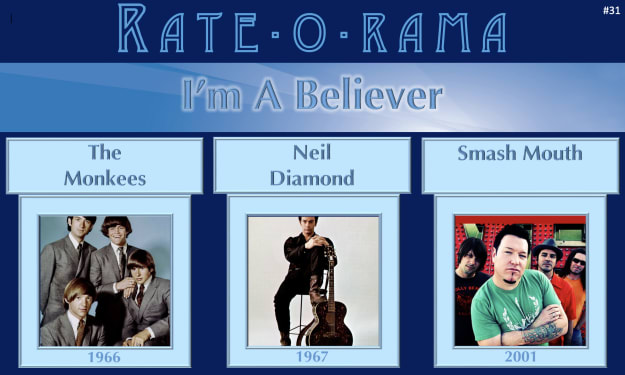MUSIC TRAINING IMPROVES BRAIN FUNCTION AND MOOD
Music training has been a recognized mental health treatment since the dawn of time. Find out how a new study shows that learning to play an instrument improves our cognition while relieving depression, anxiety and stress.

I learned to read music at the same time I learned to read and write words. I started piano lessons at age seven, and I switched to guitar at age 10.
I still play my guitar every day, and it brings me the same joy now that it did 50 years ago. There’s something about music training, and especially learning new songs, that feels meaningful and lifts my mood.
Humanity has used music for healing since the dawn of time. Apollo was the Greek god of both music and medicine. We can tell from wall paintings that Egyptian physicians used music to treat the sick.
HIPPOCRATES PLAYED MUSIC FOR HIS MENTAL PATIENTS
Historians consider Hippocrates to be the founder of the medical profession. About 2,400 years ago, he composed the oath doctors still take when they begin practice. He also played music for his mental patients.
In the twentieth century, the horrors of both World Wars left may veterans suffering with emotional and physical trauma. Hospitals encouraged musicians to visit these patients and play for them.
The benefits of music training interventions has gradually led to their recognition as a medical treatment. Today, medical science views music therapy as one of the allied health professions.
LEARNING HOW SIGHT, HEARING AND TOUCH WORK TOGETHER
Professor Karin Petrini is a senior lecturer and associate professor in the Department of Psychology at the University of Bath. She’s been working to understand how our senses of sight, hearing and touch work together and how things like experience, expertise, sensory deprivation and learning disorders affect those multi-sensory cues.
She combines that research topic with trying to find out how music practice and experience shapes behaviour and brain functions. She’s hoping to find news ways to use music training as part of psychological interventions to help people with mental health issues.
Last week, the journal Nature Scientific Reports published a study led by Professor Petrini that considered the relationship between learning to play a musical instrument, the brain’s ability to process sights and sounds, and the moods we experience.
“PLAYING MUSIC OFTEN BRINGS JOY TO OUR LIVES”
“We know that playing and listening to music often brings joy to our lives,” Professor Petrini explained. “But with this study we were interested in learning more about the direct effects a short period of music learning can have on our cognitive abilities.”:
The researchers recruited 31 adults with no prior musical training or experience to participate in the study. They divided the participants into three groups.
One group took part in weekly one-hour music training sessions. Members of the other two groups either listened to music or studied and read instead.
MUSIC TRAINING GROUP IMPROVED SIGHT AND SOUND PROCESSING
The team discovered that after only a few weeks, the music training group displayed improved abilities to process sight and sound. These improved skills went beyond developing their musical talent.
The scientists tested the participants’ ability to judge whether or not sights and sounds happened at the same time. These tests had skill levels ranging from simple flashes and beeps to conversations.
Those who took part in the listening or study groups didn’t show the same cognitive improvements. Even though the listening group heard the same pieces of music the music training group learned to play, the scientists observed no measurable effect on the listeners.
REDUCED DEPRESSION, ANXIETY AND STRESS SCORES
The study found other benefits from learning music as well. Not only did participants in the music training group display improved cognitive abilities, they also reduced their depression, anxiety and stress scores after completing their music training.
“Learning to play an instrument like the piano is a complex task,” Professor Petrini said. “It requires a musician to read a score, generate movements and monitor the auditory and tactile feedback to adjust their further actions.”
I can definitely relate to that. Learning to play an instrument is a bit like the old party challenge of rubbing your stomach and patting your head at the same time.
COMBINING SKILLS AND SENSATIONS BECOMES SECOND NATURE
It gets even more complicated when you blend reading the music and singing along into the mix. Yet, combining all these skills and sensations becomes second nature for every musician, and they seem to keep those skills for life, like riding a bike.
As Professor Petrini put it, “In scientific terms, the process couples visual with auditory cues and results in a multi-sensory training for individuals.” The most intriguing part is the improvement in mood, which might mean music training could become a treatment for mental health patients.
Another important consideration is that the study participants were all adults. We’ve all heard the saying that, “you can’t teach on old dog new tricks.”
WE’RE ALL CAPABLE OF LIFELONG LEARNING
As an adult educator and a pet owner, I can assure you that isn’t true. Although learning takes a little more time and effort as we age, we’re all capable of lifelong learning.
Scientists call our brain’s ability to learn and change “neuroplasticity.” Although our minds aren’t quite as malleable after we become adults, our brains never lose their capacities to develop new skills.
Professor Petrini concluded the conversation on multi-sensory training by saying, “The findings from our study suggest that this has a significant, positive impact on how the brain processes audio-visual information even in adulthood when brain plasticity is reduced.”
We always have more to learn if we dare to know.
Learn more:
Playing the piano boosts brain processing power and helps lift the blues – study
An RCT study showing few weeks of music lessons enhance audio-visual temporal processing
Screen Time Better for Teens Than Disconnecting
About the Creator
David Morton Rintoul
I'm a freelance writer and commercial blogger, offering stories for those who find meaning in stories about our Universe, Nature and Humanity. We always have more to learn if we Dare to Know.






Comments
There are no comments for this story
Be the first to respond and start the conversation.